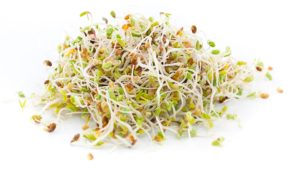Like my RSS feed notification for MMWR, FDA’s warning letter email alerts get me all excited about the potential treasures within. Like bearded dragons. And Whole Foods condensate issues.
Most telling are the letters that come after an outbreak investigation and that state almost 18% of environmental samples tested positive for Listeria monocytigenes (whoa).
FDA posted a warning letter to the Oregon Potato Company, AKA Freeze Pack, which was connected to CRF Frozen Foods outbreak.
FDA’s laboratory analysis of environmental samples collected on March 8, 2016, and March 9, 2016, confirmed that nineteen (19) of one hundred and six (106) environmental swabs tested positive for L. monocytogenes.
Specifically:
– Seven (7) positive environmental swabs were collected from direct food contact surfaces in both your Processing and Packaging Rooms during the production of your IQF diced onions. These direct food contact surface areas include:
o The chiller water and the interior north wall of the water chiller. Water from this chiller is not treated and is recirculated back to the blancher/chiller and used directly on blanched diced onions as a coolant;
o A white nylon strip in the tunnel discharge chute between the IQF freezer and the finished product Packaging Room. Blanched, finished product is conveyed and comes into direct contact with the nylon strip; and
o The metal arm on your chain conveyor belt between the IQF freezer and Packaging Room where blanched, finished product is conveyed directly on this conveying system and comes into contact with the metal arm.
– The remaining twelve (12) positive environmental swabs were collected from locations in your Processing room and your Packaging Room that were in areas adjacent to food contact surfaces and non-direct food contact surfaces.
WGS analysis was conducted on the nineteen (19) L. monocytogenes isolates obtained from the FDA environmental samples collected on March 8, 2016, and March 9, 2016. The WGS phylogenetic analysis establishes that there are at least two (2) different strains of L. monocytogenes present in the facility, with one strain containing seventeen (17) isolates and the second strain containing two (2) isolates. Specifically, the WGS analysis of the strain with 17 isolates showed that the isolates are identical to each other. WGS analysis of the strain with 2 isolates showed that the isolates are identical to 8 cases of human illness dating back to 2013, and to 6 isolates from finished products. These finished products included onions (2 isolates in 2014) and green beans (3 isolates in 2015) tested by a third party laboratory, and a single isolate from white sweet corn collected and tested by the state of Ohio in 2016. Additional investigation established that at least six (6) individuals were hospitalized as a result of related L. monocytogenes associated illness.
There’s a lot of cGMP Violations noted as well including cleaning and sanitizing issues, condensation dripping over IQF production lines and lots of niches for Listeria.










